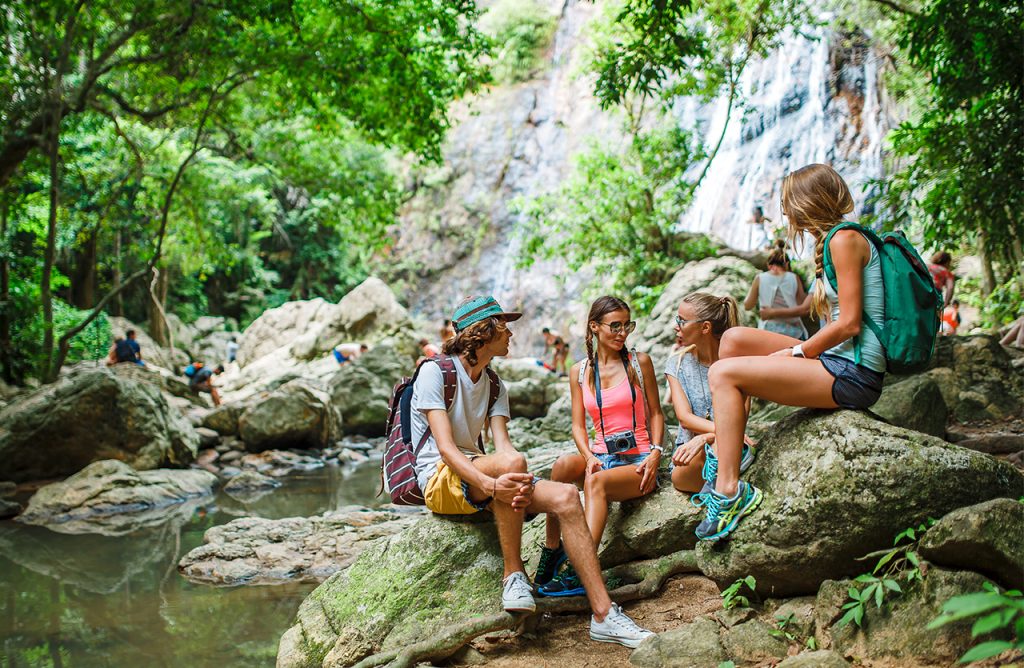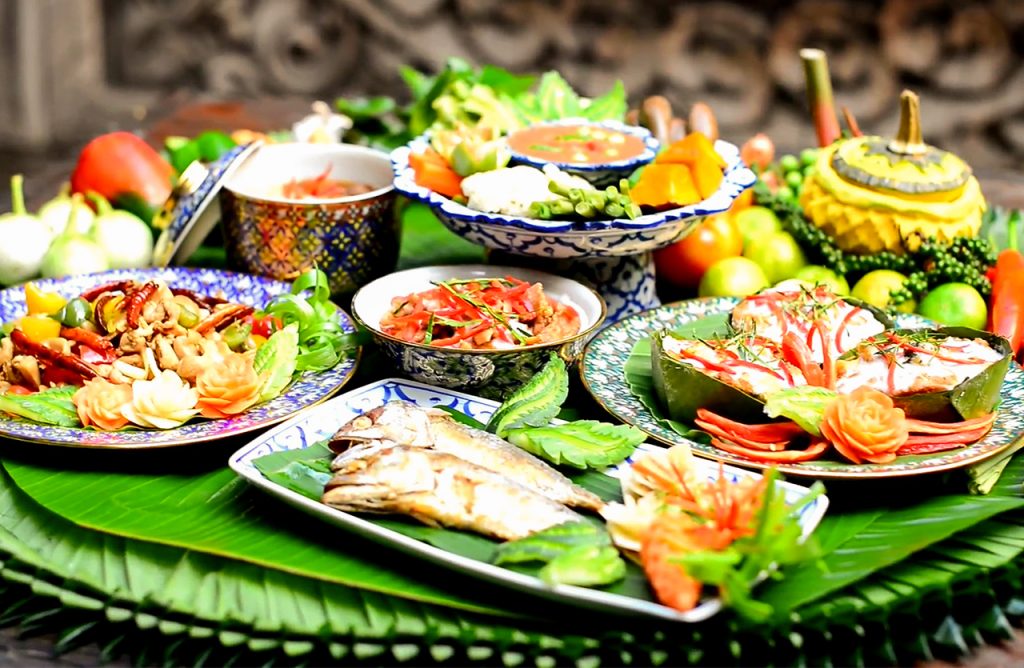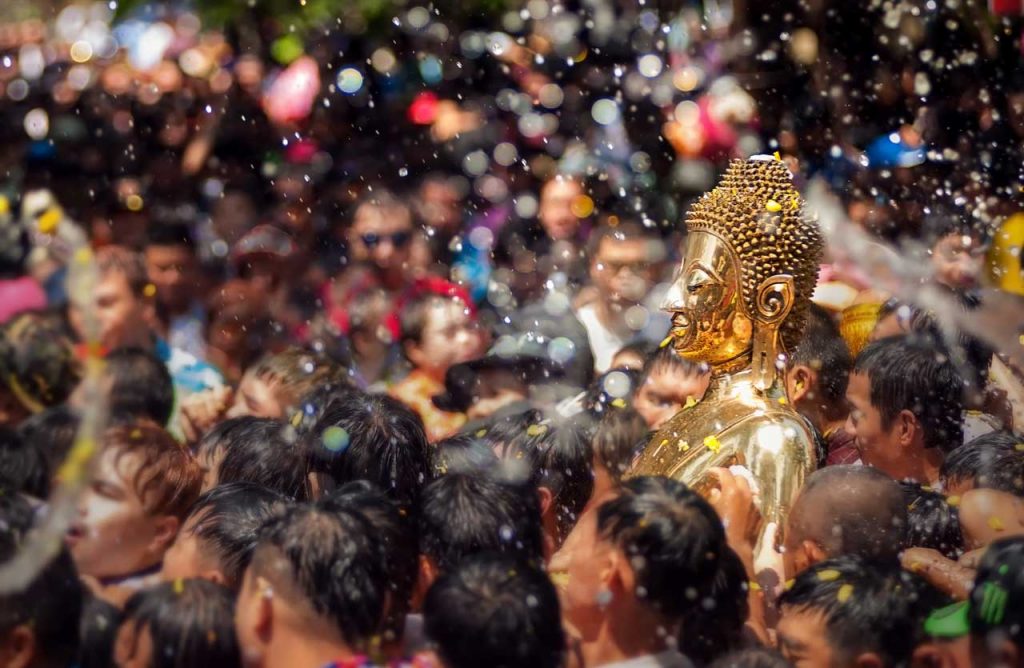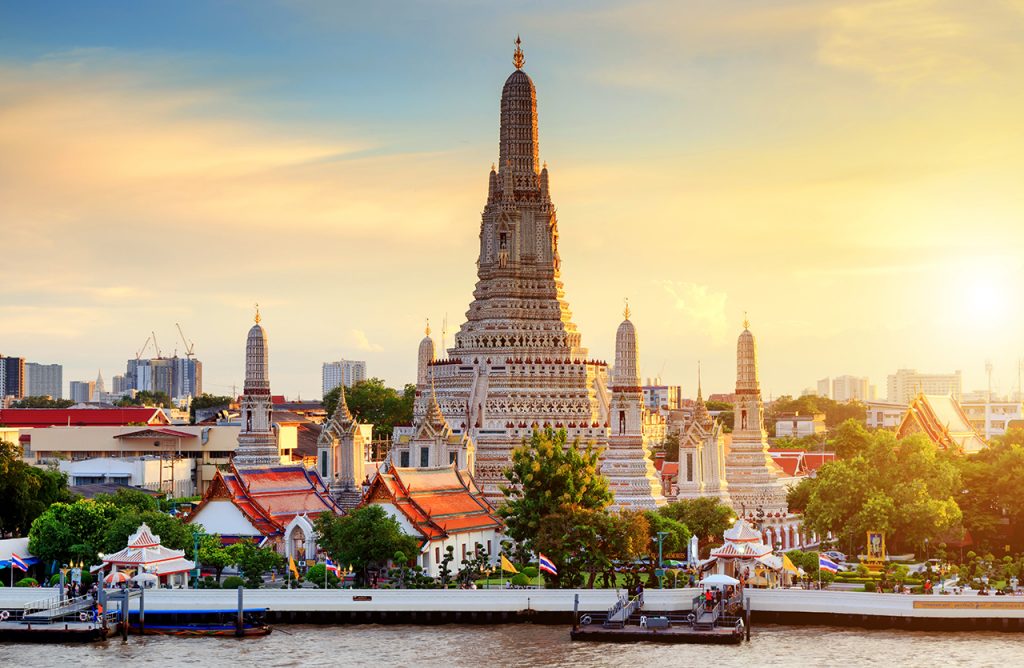

Thailand Do’s and Don’ts
When travelling in Thailand, one of the first things you’ll notice is how hospitable and friendly Thai people are in welcoming outsiders to their country. However, there are some important cultural customs to bear in mind when visiting. If you’re not careful, seemingly innocuous actions can cause offense. To avoid making any cultural faux pas, follow this simple list of do’s and don’ts, covering the most common pitfalls in Thailand. As with all things in the Land of Smiles, a little bit of kindness and consideration goes a very long way.

Don't:
1. Disrespect the monarchy
The people of Thailand truly love and respect their King. To many, he is like the father of the nation. Consequently, defamation of the King is taken very seriously - Thailand has some of the strictest lese majeste (meaning any offence that insults the royal family) laws in the world. These laws are applicable to both locals and tourists in Thailand. It's not just spoken words that can land you in trouble; visitors are also advised to be careful over what they post on social media too - don't create, like or comment on posts that might suggest negative statements or criticism about the monarchy.
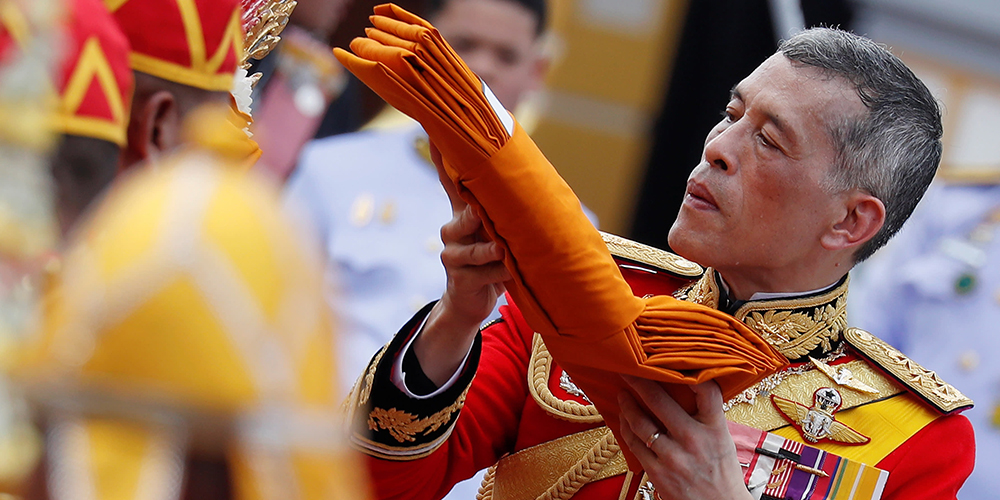
Don't:
1. Disrespect the monarchy
The people of Thailand truly love and respect their King. To many, he is like the father of the nation. Consequently, defamation of the King is taken very seriously - Thailand has some of the strictest lese majeste (meaning any offence that insults the royal family) laws in the world. These laws are applicable to both locals and tourists in Thailand. It's not just spoken words that can land you in trouble; visitors are also advised to be careful over what they post on social media too - don't create, like or comment on posts that might suggest negative statements or criticism about the monarchy.

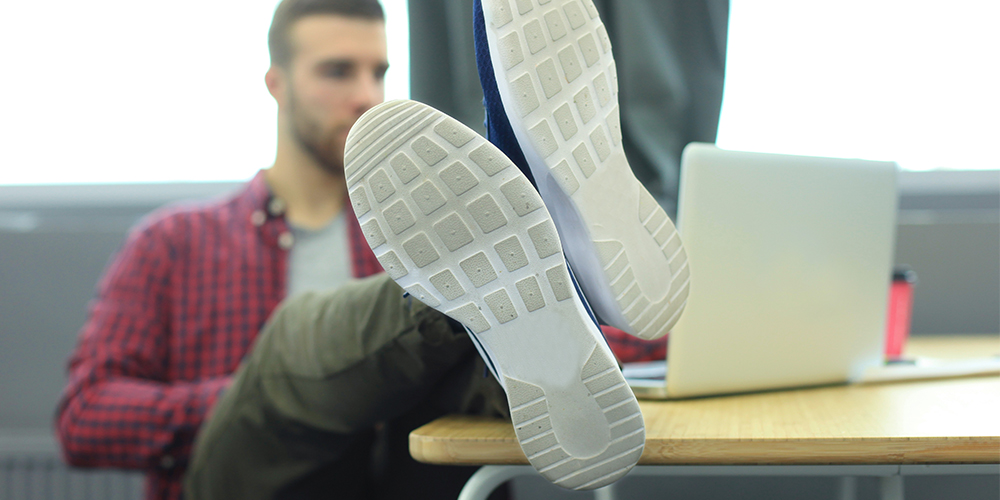
2. Show the soles of your feet
In Thai Buddhism, the feet are considered the lowest and dirtiest part of the body. Don't raise your feet higher than someone's head or put your feet onto the desk or chair, as that would be considered very rude. Showing the bottom of your feet to someone in Thailand is tantamount to giving someone the middle finger elsewhere. Also, be careful to avoid pointing your feet at images of the Buddha.
2. Show the soles of your feet
In Thai Buddhism, the feet are considered the lowest and dirtiest part of the body. Don't raise your feet higher than someone's head or put your feet onto the desk or chair, as that would be considered very rude. Showing the bottom of your feet to someone in Thailand is tantamount to giving someone the middle finger elsewhere. Also, be careful to avoid pointing your feet at images of the Buddha.

3. Touch a Thai person's head or ruffle their hair
While the feet are considered the lowest and dirtiest part of the body, the head is the highest and most sacred. To touch someone's head is to defile or belittle them, so don't do it (this can be particularly difficult for westerners, as ruffling a kid's hair is a sign of affection; in Thailand, this innocent gesture can be easily misconstrued). Also, avoid stepping over someone who is sleeping on the ground if you encounter one.

3. Touch a Thai person's head or ruffle their hair
While the feet are considered the lowest and dirtiest part of the body, the head is the highest and most sacred. To touch someone's head is to defile or belittle them, so don't do it (this can be particularly difficult for westerners, as ruffling a kid's hair is a sign of affection; in Thailand, this innocent gesture can be easily misconstrued). Also, avoid stepping over someone who is sleeping on the ground if you encounter one.


4. Point with your finger
This is considered rude in many cultures, but especially in Thai culture. When you want to point at something, it is better to use your hand (palms up with your hand towards the object) rather than pointing with your finger.
4. Point with your finger
This is considered rude in many cultures, but especially in Thai culture. When you want to point at something, it is better to use your hand (palms up with your hand towards the object) rather than pointing with your finger.

5. Throw things
Tossing an object in someone's direction is also considered rude. Take your time to hand things to people properly, face up, preferably with your right hand. Also, it is better to unfold money when paying someone.
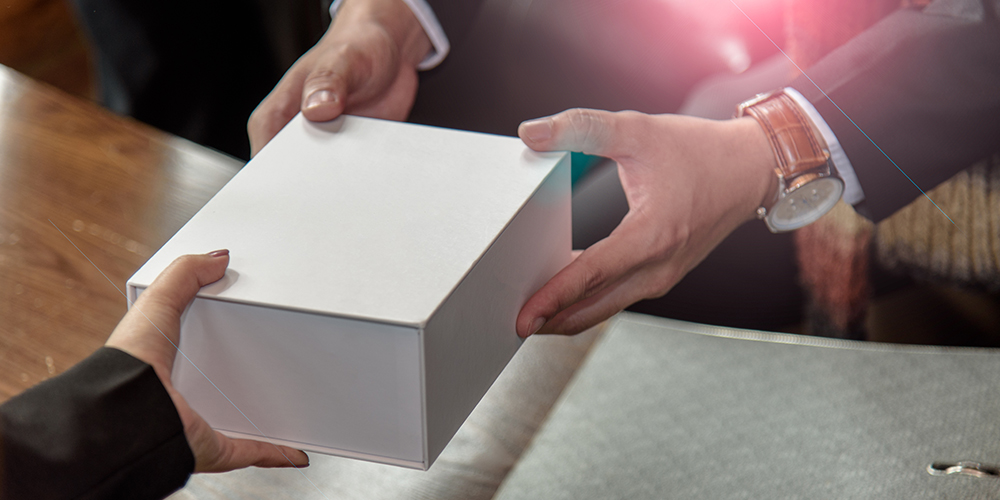
5. Throw things
Tossing an object in someone's direction is also considered rude. Take your time to hand things to people properly, face up, preferably with your right hand. Also, it is better to unfold money when paying someone.

Do:
1. Dress appropriately
You should always dress neatly and politely when visiting temples or royal palaces. Cover your knees and shoulders and wear clothes that are not too tight. This applies to both men and women.

Do:
1. Dress appropriately
You should always dress neatly and politely when visiting temples or royal palaces. Cover your knees and shoulders and wear clothes that are not too tight. This applies to both men and women.

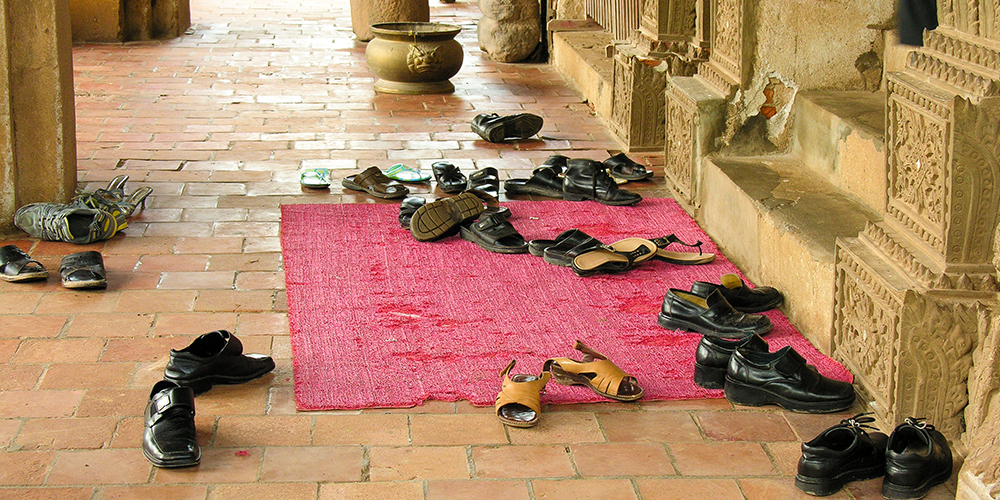
2. Take off your shoes
Always take off your shoes when entering temples or when you visit someone's home. Some shops also apply this rule, so be aware of it. If you're unsure whether you should take your shoes off, the pile of footwear outside the door is your biggest clue.
2. Take off your shoes
Always take off your shoes when entering temples or when you visit someone's home. Some shops also apply this rule, so be aware of it. If you're unsure whether you should take your shoes off, the pile of footwear outside the door is your biggest clue.

3. Treat monks with the highest respect
Whenever you encounter a monk in Thailand, you should treat them with respect. Women should be careful when being near monks as they are not allowed to touch them. Give monks plenty of space to move around. When you pass a monk, it is suggested to lower your body.
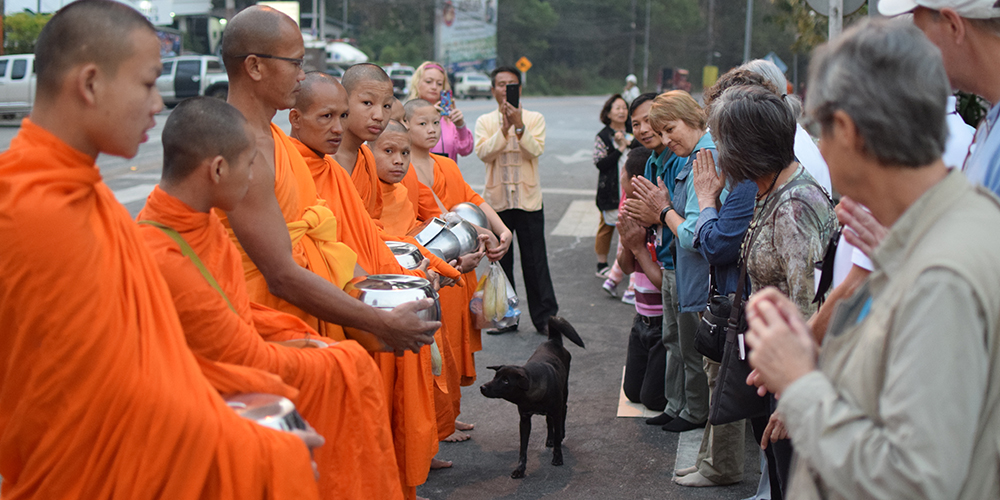
3. Treat monks with the highest respect
Whenever you encounter a monk in Thailand, you should treat them with respect. Women should be careful when being near monks as they are not allowed to touch them. Give monks plenty of space to move around. When you pass a monk, it is suggested to lower your body.

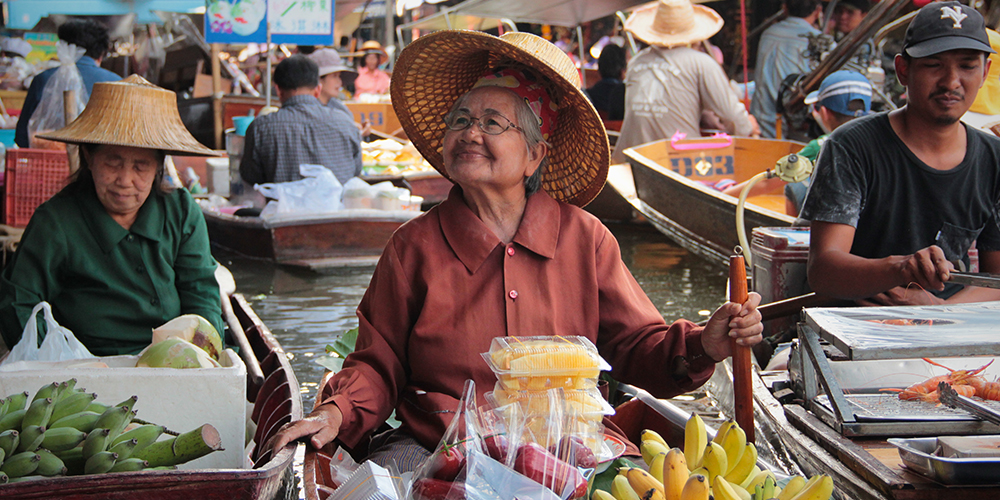
4. Smile!
Thailand is known as the Land of Smiles. When someone smiles at you, don't hesitate to return the gesture, as it is essential to Thai etiquette. When you're at shops or restaurants, you'll often receive a 'Wai' (Thailand's traditional greeting shown by putting hands together and giving a bow or a nod). It is not obligatory to return the Wai from someone who provides you a service, but you can return it with a nice grateful smile.
4. Smile!
Thailand is known as the Land of Smiles. When someone smiles at you, don't hesitate to return the gesture, as it is essential to Thai etiquette. When you're at shops or restaurants, you'll often receive a 'Wai' (Thailand's traditional greeting shown by putting hands together and giving a bow or a nod). It is not obligatory to return the Wai from someone who provides you a service, but you can return it with a nice grateful smile.

5. Respect all Buddha images
Images of the Buddha are sacred and sacrilegious acts are punishable even if committed by foreign tourists. As long as you stay respectful, you are allowed to take pictures in front of Buddha images, unless there is a sign that states you shouldn't.
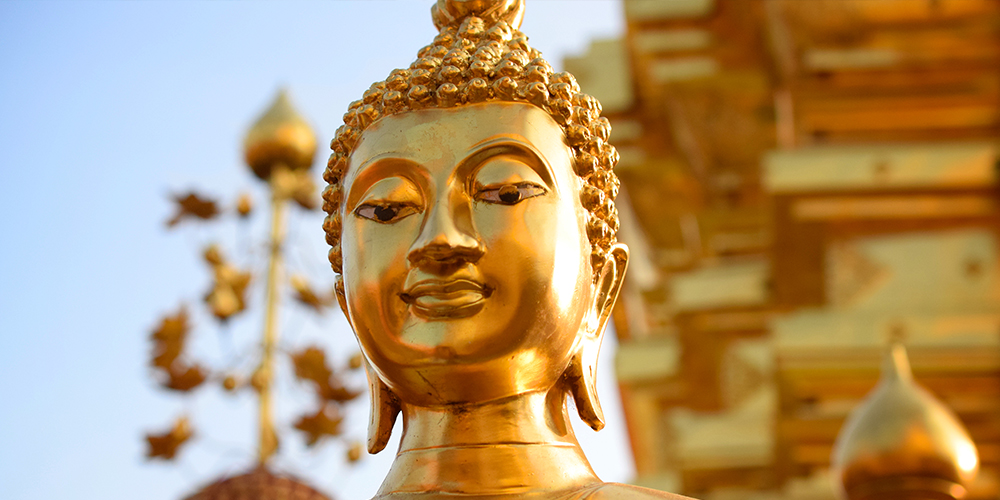
5. Respect all Buddha images
Images of the Buddha are sacred and sacrilegious acts are punishable even if committed by foreign tourists. As long as you stay respectful, you are allowed to take pictures in front of Buddha images, unless there is a sign that states you shouldn't.

Beyond Covid: 5 Tips For Safer Travel
18th November 2020
With borders reopening, travel restrictions being lifted and new visas now available, we can finally begin planning those long-awaited holidays in Thailand! After so long in lockdown, many travellers are nervous about heading abroad and want to know how they can stay safe. […]
READ MOREThailand: Top Picks
21st October 2020
Looking forward to a little summer sun after months of lockdown? With Covid-19 restrictions finally being lifted and flights returning to Thailand, now is the time to start planning ahead for that long-awaited and much-anticipated getaway. If you’re wondering where to begin, Panorama […]
READ MORE5 Tips For Thai Animal Tourism
23rd September 2020
From elephants and tigers to dolphins, turtles and whales, Thailand offers some of the most amazing wildlife the world has to offer. However, tourism and the natural world don’t always mix. In this article, we provide some practical tips for travellers in Thailand. Our goal is to provide unique, […]
READ MORECommon Problems & Solutions
10th February 2020
Travelling in Thailand is an unforgettable experience; the majority of visitors to the Land of Smiles leave with only positive stories to tell. However, as with all travel in far-flung places, things can occasionally go wrong. To ensure you remember […]
READ MOREUnesco City Of Gastronomy – Phuket Town
5th July 2019
Phuket Town is known for many things: historical architecture, spectacular beaches and vibrant nightlife. But one thing that keeps visitors coming back for more is the food; with an amazing array of local delicacies, there’s something here to satisfy every […]
READ MOREThailand Do’s And Don’ts
26th April 2019
When travelling in Thailand, one of the first things you’ll notice is how hospitable and friendly Thai people are in welcoming outsiders to their country. However, there are some important cultural customs to bear in mind when visiting. If you’re […]
READ MORETop 10: Beaches In Phuket
3rd September 2018
Looking for postcard-perfect beach breaks in Phuket? Thailand’s favourite island is perfectly located in the warm and tranquil waters of the Andaman Sea, and is home to some of the country’s most iconic beaches. You’ll find most of them along […]
READ MORETop 10: Street Foods In Thailand
30th November 2017
Wherever you go in Thailand, you’ll find that as soon as the sun goes down – and sometimes before – the streets fill up with tables and chairs, the fragrant air cools and thickens with cooking smoke and every available […]
READ MORETop Festivals In Thailand
17th November 2017
In Thailand, the calendar is packed with weird and wonderful events – outlandish festivals and celebrations that are the perfect excuse to party. From food festivals to rocket races, buffalo beauty pageants and underwater weddings, there’s plenty to see and […]
READ MOREBeyond Covid: 5 Tips For Safer Travel
With borders reopening, travel restrictions being lifted and new visas now available, we can finally begin planning those long-awaited holidays in Thailand! After so long in lockdown, many travellers are nervous about heading abroad and want to know how they can stay safe. […]
Thailand: Top Picks
Looking forward to a little summer sun after months of lockdown? With Covid-19 restrictions finally being lifted and flights returning to Thailand, now is the time to start planning ahead for that long-awaited and much-anticipated getaway. If you’re wondering where to begin, Panorama […]
5 Tips For Thai Animal Tourism
From elephants and tigers to dolphins, turtles and whales, Thailand offers some of the most amazing wildlife the world has to offer. However, tourism and the natural world don’t always mix. In this article, we provide some practical tips for travellers in Thailand. Our goal is to provide unique, […]
Common Problems & Solutions
Travelling in Thailand is an unforgettable experience; the majority of visitors to the Land of Smiles leave with only positive stories to tell. However, as with all travel in far-flung places, things can occasionally go wrong. To ensure you remember […]
Unesco City Of Gastronomy – Phuket Town
Phuket Town is known for many things: historical architecture, spectacular beaches and vibrant nightlife. But one thing that keeps visitors coming back for more is the food; with an amazing array of local delicacies, there’s something here to satisfy every […]
Thailand Do’s And Don’ts
When travelling in Thailand, one of the first things you’ll notice is how hospitable and friendly Thai people are in welcoming outsiders to their country. However, there are some important cultural customs to bear in mind when visiting. If you’re […]
Top 10: Beaches In Phuket
Looking for postcard-perfect beach breaks in Phuket? Thailand’s favourite island is perfectly located in the warm and tranquil waters of the Andaman Sea, and is home to some of the country’s most iconic beaches. You’ll find most of them along […]
Top 10: Street Foods In Thailand
Wherever you go in Thailand, you’ll find that as soon as the sun goes down – and sometimes before – the streets fill up with tables and chairs, the fragrant air cools and thickens with cooking smoke and every available […]
Top Festivals In Thailand
In Thailand, the calendar is packed with weird and wonderful events – outlandish festivals and celebrations that are the perfect excuse to party. From food festivals to rocket races, buffalo beauty pageants and underwater weddings, there’s plenty to see and […]



